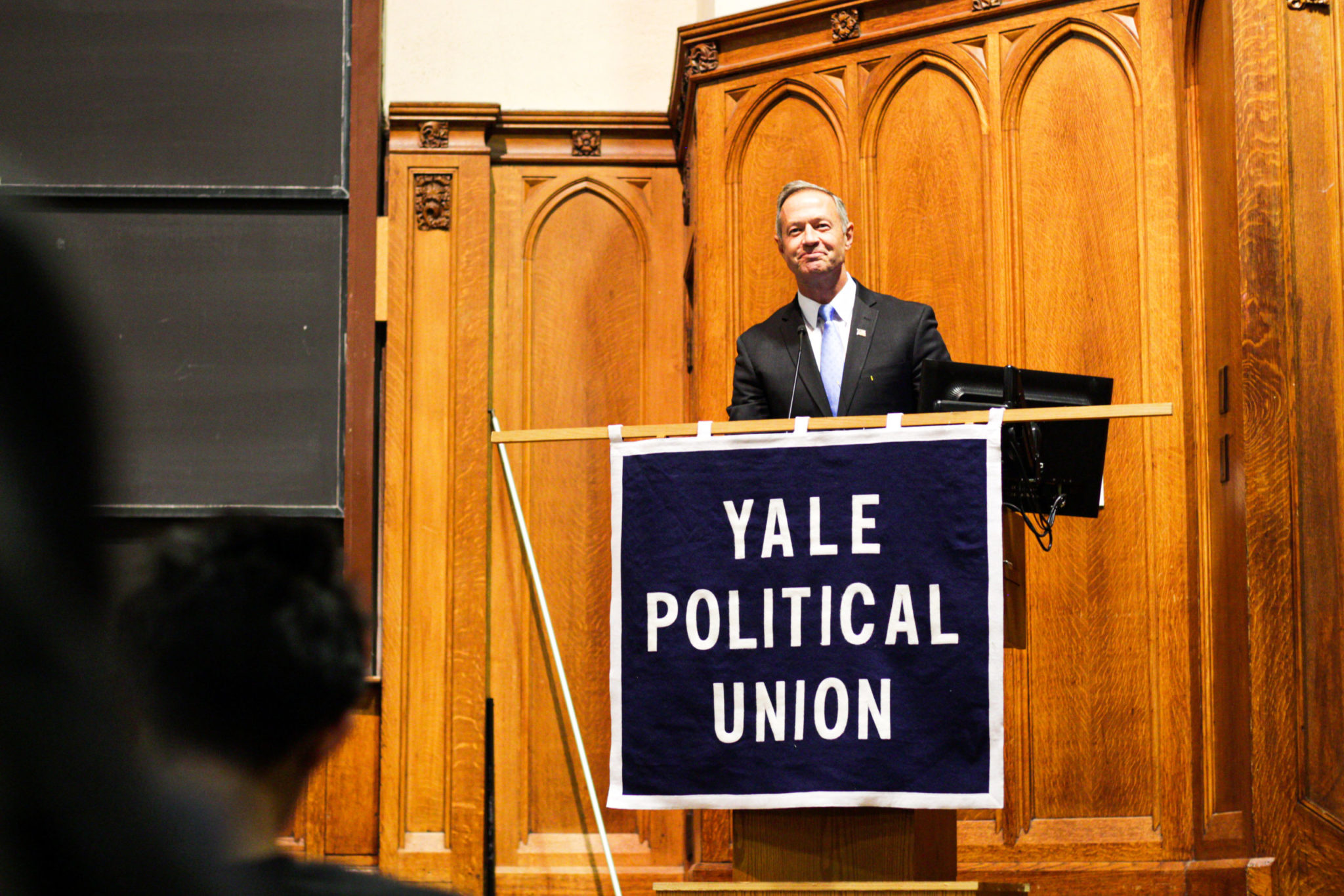
Daniel Zhao
Ever since the Progressive Party rejoined the Yale Political Union last semester, it has seen an uptick in interest from students — many of whom joined the party to engage in intellectually stimulating conversations and to be a part of a moderate left-leaning group.
The Progressive Party returned to the YPU at the end of last fall term. Prior to a January 2019 meeting for interested members, the party had been effectively dormant for nearly a decade. Now that it is back in the YPU, the party — often dubbed the “Progs” — is inviting interested students to seek formal membership in the group and the YPU, to which they must pay dues. According to two YPU members, the party has seen increased interest and has had high attendance at meetings. Prog Party member Olivia Marwell ’23, who petitioned last semester, said she has noticed an increase in petitioners this semester relative to last semester’s numbers, but she added that she is unsure if this is related to the party’s revived relationship with the YPU.
“There are more petitioners this semester than there were last semester, but I couldn’t say for sure that we have more interest directly because we are now an official party of the YPU,” Marwell said.
According to Marwell, there were very few requirements needed to qualify as one of the 35 petitioners. Still, she said that in order to sign up, a student had to speak two times on the floor of the Progressive Party. She described having been “terrified to speak for the first time,” but said that the audience is “supportive” whenever someone makes a first speech.
According to Tyler Brown ’23 — a Progs member and a staff reporter for the News — the group used to have a laxer process for joining, but the process has become more institutionalized since the Progs rejoined the YPU. Petitioners, according to Brown, have to attend a certain number of debates per semester. To accommodate new speakers, Brown said that the Party is hosting a petitioners’ debate. This process concludes with a “week of initiation” and “inquisition.” Brown estimated that the new class of petitioners is between 12 and 15 students.
“Debates have gotten so much larger than last semester,” Brown told the News. He attributed this increase in participation to the Progressive Party having “room for a lot of ideas.”
Progressive Party Founder Sarah Strober ’20, who coordinated the January 2019 meeting, told the News in an email about the Progressive Party’s future plans.
“Members [will] host Democratic debate watch parties, engage in volunteer work and have dinner together weekly … As passionate members of the Left, we need to understand how to defend and fight for our beliefs,” Strober said. “Many of our members engage with advocacy work through other groups on campus. Our hope is that being part of the Progs helps our members be more effective in their chosen advocacy work.”
Marwell told the News that she joined the Progs because the group’s “core ideology is … a space for people to debate issues that divide the left.”
She added that it is not a “radical leftist group” and that members hold a broad range of opinions.
“It’s a left-leaning party, but there are members that identify as Marxists and others as centrists,” Marwell said. “What is unique about Progs as a space for political discussion is that it’s really amicable. There’s not super-heated discussion as people experience a lot of the times these days. It’s a space to flesh out ideas and consider things that you haven’t.”
The Progs began recruiting petitioners last semester, and Emma Knight ’22 joined at the start of the process. Knight explained that while the Progs is primarily a “debate society,” the group also wants to “direct [its] passions for progressive change toward doing good in our community.” She cited a recent trip to City Hall to “sit in on a committee meeting,” baking for the local emergency shelter and participating in debates about “whether Yale students should vote in New Haven.”
Knight told the News that she is also “hoping to coordinate with climate activism groups on campus later in the semester to see if there is anything [the Progs] can do to help them out.”
Alana Ervin ’23, another new member, wrote to the News in an email that the Progs “is a space for students to explore the complexity of their political identities as progressives.” She added that the Progressive Party has helped her “realize that understanding what you believe to be a positive impact is just as important as exercising that compassion.”
According to Andrew Sorota ’22, the party is a “forum for individuals across the Left to discover what they believe, why they believe it and to learn how to more effectively defend those beliefs.”
Sorota also discussed the connection that the Progs make between philosophical discourse and advocacy, in that it is important for them to “reaffirm why [they] are doing the work that [they] do.”
“Our members are leaders in advocacy organizations across campus, including the Yale Dems, Fossil Free Yale, the Yale Undergraduate Prison Project and the Yale Undergraduate Legal Aid Association,” Sorota wrote in an email to the News.
The Yale Political Union was founded in 1934.
Larissa Jimenez | larissa.jimenez@yale.edu







